The celebration of five years of Ocean SAMP garnered some media coverage. Check out the coverage in The Westerly Sun and The Narragansett Times!
Tag Archives: CRC
CRC Gives Grad Student from Ghana Opportunity to Make a Difference
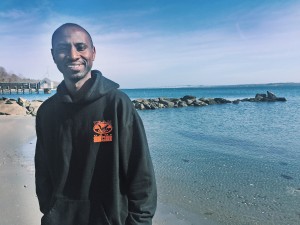
As a young boy growing up in a coastal village in Ghana, URI graduate student Evans Arizi could see the economic importance of fish.
He saw local fishermen in Metika and Anlomatuope — fishing villages near the border of Ghana and Cote d’Ivoire in West Africa — paddle their canoes into the waves and watched international boats cast nets into the water to reel in Ghana’s main source of protein.
He also saw how frequently fishing resources were exploited.
“The challenges are many,” Arizi, 29, says. “Some fishermen are using inadvisable methods of fishing, and the territorial waters are not protected due to insufficient logistics, so anyone can come in there and fish.”
In Ghana, lack of government investment in sustainable fishing policies has created a plethora of problems with illegal fishing. Because fishing laws are not properly enforced, vessels frequently use incorrect gear, like nets that are too small to free bycatches and immature fish, therefore increasing their catch and profits but depleting the stock of young fish before they can reproduce. Though fishermen are supposed to report juvenile catches, many do not out of fear of punishment. Arizi says local fishermen sometimes adhere to practices that pollute waters and lead to species degradation.
“Local authorities back these illegal practices out of greed,” he says. “(They think,) ‘Let me think of my stomach, let me not think of others.’ ”
Arizi aims to help change that culture at home, and the path to that goal has taken him to URI. He was introduced to the university through CRC. As an undergraduate, he participated in a fish stock assessment training program that was part of a CRC sustainable fisheries project in Ghana, which “provided many useful relevant materials” to local fishing communities, he says.
CRC currently leads a group of partners in the five-year Sustainable Fisheries Management Project in Ghana funded by the United States Agency for International Development (USAID/Ghana SFMP). The project aims to improve conditions for sustainable local fishing practices, help fishing communities become stewards of their resources, strengthen information systems for managing fisheries and increase awareness for protecting fisheries ecosystems and the people who rely on them for their livelihoods, among other goals.
To help create the next generation of fisheries scientists and leaders in Ghana, the project is facilitating student exchanges and scholarship opportunities at URI in collaboration with the University of Cape Coast in Ghana, Arizi’s alma mater. Through CRC, Arizi applied for a scholarship to earn a PhD in Biological and Environmental Sciences at URI. He was accepted and moved to URI to begin the three-and-a-half-year program in January. It was his first time outside of Ghana.
“When the opportunity came for me to come here I was so excited,” Arizi says. “I felt that by coming here I would get the necessary materials and resources to be equipped to handle the opposition (to implementing and enforcing sustainable fishing laws in Ghana).”
Before coming to URI, Arizi worked as a principal research assistant for the Department of Fisheries & Aquatic Sciences at the University of Cape Coast in Ghana. That experience, his fieldwork with CRC and his course work as an undergrad and graduate student at the university in Ghana brought the fisheries challenges into sharp focus. Much of it comes down to competition, Arizi says.
“When an individual spots a friend doing such an unwarranted act (like illegal fishing practices), he will decide to do the same,” Arizi says. While he believes the government needs to implement and enforce fishing laws recommended to them by many — including SFMP, which helped the country draft the recently adopted National Fisheries Management Plan — the most important change needed is in the behavior of fishermen.
“The fishermen have to change their behavior and also put their trust in others, he says.
Arizi hopes that his wife, whom he married a month before moving to Rhode Island, eventually can join him. Currently, however, his main focus is his studies. “I don’t want to get any Cs, not at all, so I have to work hard,” Arizi says. “My wife keeps on encouraging me to do well.” He is the first member of his family to go to college; however, he hopes his six siblings can follow his lead.
Though Arizi says that working to excel in his five classes often means waking up early in the morning and staying up late at night, he likes graduate school.
“God has done a lot for me, because of all my friends who started out in school at the same time, I’m the only one who made it to this level,” Arizi says. “I like education; knowledge is power.”
— Allison Farrelly
Another Chance to Catch up on the Ocean SAMP
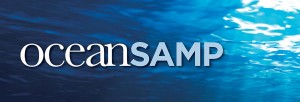
If you missed the RI Ocean Special Area Management Plan (Ocean SAMP) celebration of five years of achievements on Tuesday, March 29, you can get up to speed by tuning into the archive of the live stream.
The Ocean SAMP is the Rhode Island Coastal Resources Management Council’s chief regulatory document for managing the uses and resources of Rhode Island’s offshore waters. CRC and Rhode Island Sea Grant are facilitating this meeting and many aspects of the public process.
Click here to learn more about the Ocean SAMP.
Tonight’s Ocean SAMP Celebration is Being Live Streamed
If you can’t join us at the Coastal Institute on URI’s Bay Campus tonight for a special stakeholder meeting to celebrate the past five years of the Rhode Island Ocean Special Area Management Plan (Ocean SAMP), stay in the loop via live stream. Visit the Rhode Island Sea Grant You Tube page to tune in.
Video Takes You on the Water with a Quahogger
For hundreds of years, people have harvested quahogs from Narragansett Bay in Rhode Island, for sustenance and income. This video gives you a first-hand glimpse into this iconic New England way of life with quahogger Dave Andrade. CRC worked closely with this community and a broad range of stakeholders to develop Rhode Island’s first Shellfish Management Plan.
CRC Working to Help Save Historic Structures from Rising Tides
Read the latest on how CRC’s coastal team has participated in the effort to save historic structures in Newport from flood water and sea level rise. Dawn Kotowicz, Teresa Crean and Pam Rubinoff have been working with the Newport Restoration Foundation, and the team will participate in the History Above Water conference in April.
Legal Aspects of Living Along Shoreline Topic of March 30 Talk
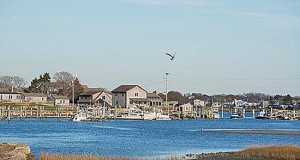 A series of educational programs about Rhode Island’s salt ponds and their uses, particularly shellfish farming, continues March 30 with “Riparian Privilege: Legal Aspects to Living Along the Shoreline,” presented by Dennis Esposito, adjunct professor at the Marine Affairs Institute and director of the Environmental and Land-Use Clinical Externship Program at Roger Williams University School of Law.
A series of educational programs about Rhode Island’s salt ponds and their uses, particularly shellfish farming, continues March 30 with “Riparian Privilege: Legal Aspects to Living Along the Shoreline,” presented by Dennis Esposito, adjunct professor at the Marine Affairs Institute and director of the Environmental and Land-Use Clinical Externship Program at Roger Williams University School of Law.
The presentation will be held from 5:30-7 p.m., Wednesday, March 30, at Cross Mills Public Library, 4417 Old Post Road, Charlestown, RI.
Refreshments will be served. RSVP to Azure Cygler at azure@crc.uri.edu.
This series is sponsored by Rhode Island Sea Grant and the CRC, in collaboration with Roger Williams University and the R.I. Coastal Resources Management Council, supported by a grant from the NOAA National Sea Grant College Program. For more information visit www.rismp.org
CRC’s Torell to Address Women in Fisheries Management at CI March 22
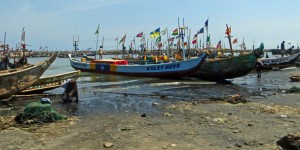
CRC’s Director of International Programs, Dr. Elin Torell, will give a brown-bag presentation at Conservation International in Arlington, Va., on “Strengthening Women’s Participation in Fisheries Management: Lessons from Ghana” on Tuesday, March 22, from noon to 1 p.m.
She will discuss the center’s involvement in the USAID/Ghana Sustainable Fisheries Management Project, which supports Ghana’s fisheries development policies and objectives. Within this project, CRC works to ensure that the interests of both women and men are represented in fisheries co-management. The presentation will highlight CRC’s gender work, which has included a detailed gender analysis focuses on the fisheries sector and value chain and the implementation of a gender mainstreaming strategy.
For remote access: https://global.gotomeeting.com/join/997685717
Valuable Lessons in Case Studies of Marine Spatial Planning
CRC shares lessons learned from the practice of Coastal and Ocean Planning in the United States and abroad as part of its ongoing research and capacity-building initiative to strengthen the network of Marine Spatial Planning (MSP) and coastal management practitioners. Three case studies document MSP experiences in Rhode Island, Washington and San Francisco:
1. The Rhode Island case focuses on implementation of the Rhode Island Ocean Special Area Management Plan.
2. The Washington State effort focuses on the ongoing development of the Washington Coast Marine Spatial Plan.
3. The San Francisco study is a two-case analysis of Coast Guard-led waterways management initiatives.
For access to other documents including technical reports summarizing these three case studies click here.
Get Fresh Ideas on Green Infrastructure and Parking March 17
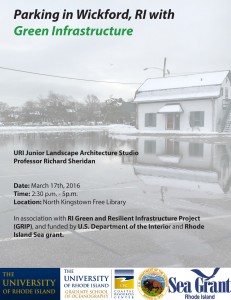 On Thursday, March 17, URI Landscape Architecture students will share their vision for re-imagining waterfront parking areas in Wickford, R.I., using green and resilient infrastructure techniques to address rising seas and storm impact.
On Thursday, March 17, URI Landscape Architecture students will share their vision for re-imagining waterfront parking areas in Wickford, R.I., using green and resilient infrastructure techniques to address rising seas and storm impact.
They will present their design ideas for Town Dock, Brown Street Parking Lot and an auxiliary parking site adjacent to the Wickford Village center. The program runs from 2:30-5:30 pm. at the North Kingstown Free Library, 100 Boone St., North Kingstown, R.I.
This project is supported with funding from the RI Green and Resilient Infrastructure Project, led by CRC with funding from the U.S. Department of Interior and National Fish and Wildlife Federation and the Rhode Island Sea Grant College Program.
To learn more contact CRC Coastal Manager Teresa Crean at tcrean@crc.uri.edu.
or 874-6626.


